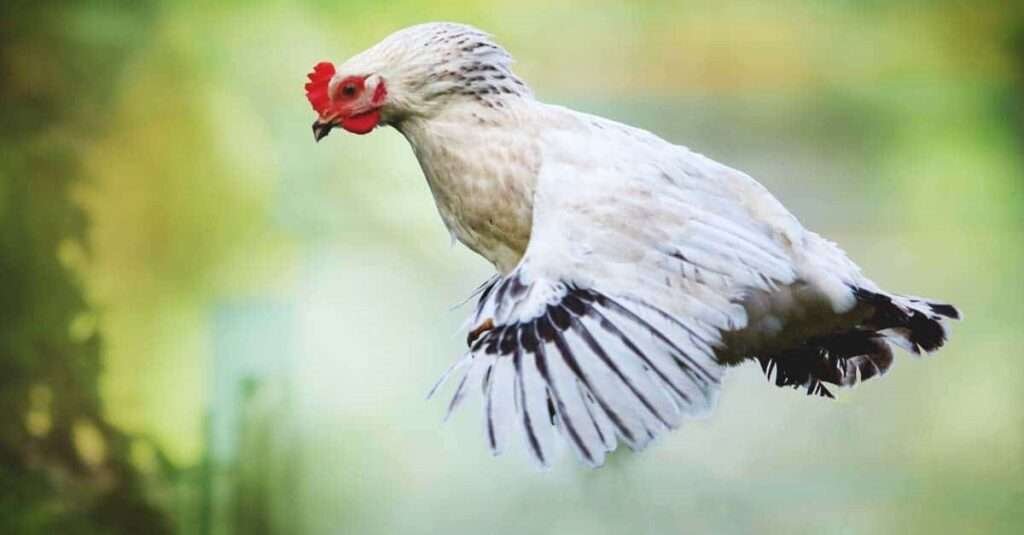Raising chickens can be a rewarding and fulfilling experience, but it also comes with the responsibility of ensuring the well-being of your feathered friends. Just like any other pet or livestock, chickens require regular health checks to maintain good health and prevent potential issues. In this comprehensive guide, we will explore the essential aspects of chicken health checks, helping you understand what to look for in terms of your flock’s general health, when to seek veterinary assistance, and how to establish a relationship with a poultry-savvy veterinarian.
Recognizing Signs of a Healthy Chicken:
Before delving into health checks, it’s crucial to familiarize yourself with the signs of a healthy chicken. Healthy chickens exhibit certain characteristics and behaviors that indicate their overall well-being. Here are some key indicators of a healthy chicken:
1. Normal Behavior and Activities: Healthy chickens are active, curious, and alert. They will forage, scratch, and explore their environment throughout the day. Active behavior and social interactions among the flock members are signs of contentment.
2. Physical Characteristics: A healthy chicken will have bright, clear eyes without any discharge. Their beak should be clean and free from deformities. The comb and wattles should be vibrant in color and well-hydrated. Healthy chickens typically have smooth, glossy feathers with no signs of bald patches or excessive molting.
3. Eating and Drinking Habits: Observe your chickens during feeding times. Healthy chickens will have a healthy appetite and readily consume their feed. They will also drink water regularly, and their water containers should always be clean and free from contaminants.
4. Egg Production (for Hens): For laying hens, consistent and regular egg production is a sign of good health. Healthy hens should lay eggs with strong shells and normal coloration. A sudden decrease in egg production or abnormal eggs may indicate underlying health issues.

General Chicken Health Checks for Your Flock:
Establishing a routine for regular health checks is essential for promptly identifying any potential health issues in your flock. By conducting regular inspections, you can catch problems early and implement appropriate measures to ensure the well-being of your chickens. Here’s a step-by-step guide for conducting general health checks:
1. Establishing a Routine: Dedicate time for regular health inspections of your flock. Weekly or bi-weekly checks can help you stay on top of your chickens’ health and quickly address any concerns.
2. Examining Eyes, Beaks, and Combs: Inspect your chickens’ eyes for clarity and check for any signs of discharge or cloudiness. The beaks should be clean and free from any deformities. Pay attention to the comb and wattles, as any discoloration or dryness may indicate dehydration or illness.
3. Checking Legs and Feet: Carefully examine your chickens’ legs and feet. Look for any injuries, swelling, or abnormalities. Healthy chickens should walk and stand with ease, without any signs of lameness.
4. Assessing Feather Condition and Appearance: The condition of your chickens’ feathers can reveal a lot about their health. Smooth, shiny feathers generally indicate good health, while dull, ruffled feathers may suggest underlying issues.
5. Identifying Signs of Illness: Be vigilant for any signs of illness in your flock. Common signs include lethargy, reduced appetite, abnormal droppings, labored breathing, sneezing, or coughing.
By familiarizing yourself with these general health checks and regularly monitoring your chickens, you can maintain a healthy and happy flock. However, it’s important to remember that preventive care and veterinary assistance also play crucial roles in safeguarding your chickens’ well-being.
The Role of Preventive Care and Vaccinations:
Preventive care is an essential aspect of maintaining the health and well-being of your chicken flock. By taking proactive measures, you can minimize the risk of infectious diseases and reduce the likelihood of health issues in your chickens. Here’s how to implement preventive care effectively:
1. Understanding the Importance of Preventive Measures: Preventive care involves various strategies aimed at safeguarding your chickens’ health. It includes practices such as proper sanitation, maintaining a clean and well-ventilated coop, and regular health checks to detect potential issues early on.
2. Vaccination Recommendations for Common Poultry Diseases: Consult with a poultry-savvy veterinarian to determine the most suitable vaccination schedule for your flock. Vaccinations are available for common poultry diseases such as Marek’s disease, infectious bronchitis, and fowl pox.
3. Creating a Vaccination Schedule and Keeping Records: Establish a vaccination schedule based on the recommendations provided by your veterinarian. Keeping accurate records of vaccinations will help you stay organized and ensure that your chickens are up-to-date on their immunizations.
4. Considering Biosecurity Practices: Implementing biosecurity measures can prevent the introduction and spread of diseases to your flock. Practices may include limiting visitors to your coop, quarantining new chickens before introducing them to the flock, and regularly disinfecting equipment and tools.

When to Seek Professional Veterinary Care:
While preventive care is essential, it’s also crucial to recognize when professional veterinary assistance is necessary. Some health issues may require the expertise of a qualified veterinarian to diagnose and treat effectively. Here are some situations when you should seek veterinary care for your chickens:
1. Identifying Signs That Warrant Veterinary Attention: Any significant change in your chickens’ behavior, appetite, or appearance should raise concern. Other signs, such as difficulty breathing, drooping wings, or persistent diarrhea, require immediate attention from a veterinarian.
2. The Importance of Early Intervention: Early detection and intervention are critical for successful treatment of many chicken health issues. Delaying veterinary care may lead to the worsening of the condition or the spread of disease to other members of the flock.
3. The Benefits of Regular Check-Ups: Regular check-ups with a poultry-savvy veterinarian can help ensure that your chickens are in optimal health. A veterinarian can identify potential problems before they become serious issues and provide recommendations for maintaining your flock’s well-being.
4. Establishing a Relationship with a Poultry Veterinarian: It’s beneficial to have a relationship with a veterinarian experienced in poultry care. Research and find a local veterinarian who is knowledgeable about chicken health and has experience working with backyard flocks.
Establishing a Veterinary Care Schedule:
The frequency of veterinary visits for your chickens depends on various factors, including the size of your flock, your location, and any specific health concerns. Here are some considerations when determining a veterinary care schedule:
1. Determining the Frequency of Veterinary Visits: For smaller flocks, an annual check-up may be sufficient, while larger flocks or those with special health needs may require more frequent visits.
2. Factors to Consider in Scheduling Check-Ups: Consider the age of your chickens, their vaccination status, and any potential health risks in your area. Young chicks, for example, may require more frequent veterinary attention.
3. Creating a Health Monitoring Calendar: Develop a health monitoring calendar that includes the dates of veterinary check-ups, vaccination schedules, and other essential health-related tasks. This calendar will help you stay organized and ensure that your flock receives appropriate care.
In the next section, we will discuss how to transport chickens to the veterinarian and offer tips for minimizing stress during travel and veterinary examinations. Additionally, we will explore the option of seeking home visits from a poultry veterinarian and how to prepare for such visits.

Transporting Chickens to the Veterinarian:
When seeking veterinary care for your chickens, transportation is a crucial consideration. Transporting chickens can be a source of stress for both you and your feathered friends. However, with proper preparation, you can minimize the impact of travel on your flock’s well-being. Here are some tips for safely transporting chickens to the veterinary clinic:
1. Preparing a Suitable Carrier or Container: Choose a carrier or container that is spacious enough to allow your chickens to stand and move comfortably. Ensure adequate ventilation and secure closures to prevent escapes during travel.
2. Minimizing Stress During Travel: Keep the carrier steady and minimize sudden movements during transportation. Covering the carrier with a light cloth can help reduce stress for the chickens. Avoid exposing them to extreme temperatures during transport.
3. Bringing a Familiar Comfort Item: Place a familiar item, such as a favorite perch or bedding material, inside the carrier to provide some comfort and familiarity during the journey.
4. Providing Water and Snacks: Offer a small amount of water and some treats, like mealworms or scratch, in the carrier to keep your chickens hydrated and occupied during the trip.
Seeking Home Visits from a Poultry Veterinarian:
In some cases, especially if you have a large flock or several birds with mobility issues, arranging a home visit from a poultry veterinarian might be a better option. Home visits can reduce stress for the chickens and allow the veterinarian to observe your flock in their natural environment. Here’s what you need to know about home visits:
1. Understanding the Benefits of Home Visits: Home visits allow the veterinarian to evaluate your flock in a familiar setting, which can lead to more accurate assessments of their health and behavior.
2. Finding a Veterinarian Who Offers Home Visits: Inquire with local veterinary clinics to see if they offer home visit services for poultry. Reach out to poultry organizations or online forums for recommendations on poultry-savvy veterinarians who provide home visits.
3. Preparing for a Veterinary Home Visit: Before the veterinarian arrives, make sure the coop and surrounding area are clean and well-maintained. Provide any relevant information about your flock’s health history to help the veterinarian better understand their needs.

Building a First Aid Kit for Your Chickens:
As a responsible chicken keeper, having a first aid kit on hand can be invaluable in case of minor injuries or emergencies. While not a substitute for professional veterinary care, a well-stocked first aid kit can provide immediate aid until a veterinarian can be consulted. Here’s what to include in your chicken first aid kit:
1. Basic Medical Supplies: Include items such as sterile gauze, adhesive bandages, antiseptic solution, tweezers, and scissors.
2. Wound Dressings: Have wound dressings like wound spray or antibiotic ointment to clean and protect minor injuries.
3. Heat Source: A heating pad or warm water bottle can be used to keep sick or injured chickens warm during recovery.
4. Electrolytes and Probiotics: These supplements can be helpful for rehydrating and supporting sick chickens.
5. Oral Dosing Syringes: For administering medications or fluids orally, have syringes without needles available.
6. Emergency Contact Information: Include the contact information of your veterinarian and any emergency poultry clinics in your area.
Communication with Your Local Veterinarian:
Building a positive and open relationship with your poultry-savvy veterinarian is essential for your flock’s health and well-being. When communicating with your veterinarian, keep these tips in mind:
1. Finding a Poultry-Savvy Veterinarian: Research and locate a veterinarian experienced in poultry care. Ask for referrals from other chicken keepers or local agricultural agencies.
2. Openly Discussing Concerns: Share any concerns or observations you have about your flock’s health with your veterinarian. Transparent communication will help them make informed decisions about your chickens’ care.
3. Establishing a Supportive Connection: A supportive and knowledgeable veterinarian can be a valuable resource for your chicken keeping journey. Establishing a connection with your veterinarian will ensure you receive the best advice and care for your flock.
Chicken Health Checks
Regular health checks and proactive care are vital in keeping your chicken flock happy and healthy. By recognizing the signs of a healthy chicken and conducting general health checks, you can stay ahead of potential issues and provide prompt care when needed. Vaccinations and biosecurity measures add additional layers of protection for your chickens. When necessary, seeking professional veterinary care is crucial for early intervention and proper treatment. Establishing a veterinary care schedule and building a first aid kit are essential steps in responsible chicken keeping. By fostering open communication with your local poultry veterinarian, you can ensure the best possible care for your beloved feathered companions, creating a happy and thriving flock on your homestead.






